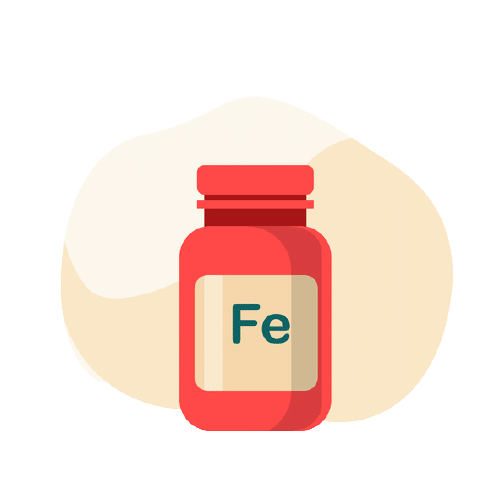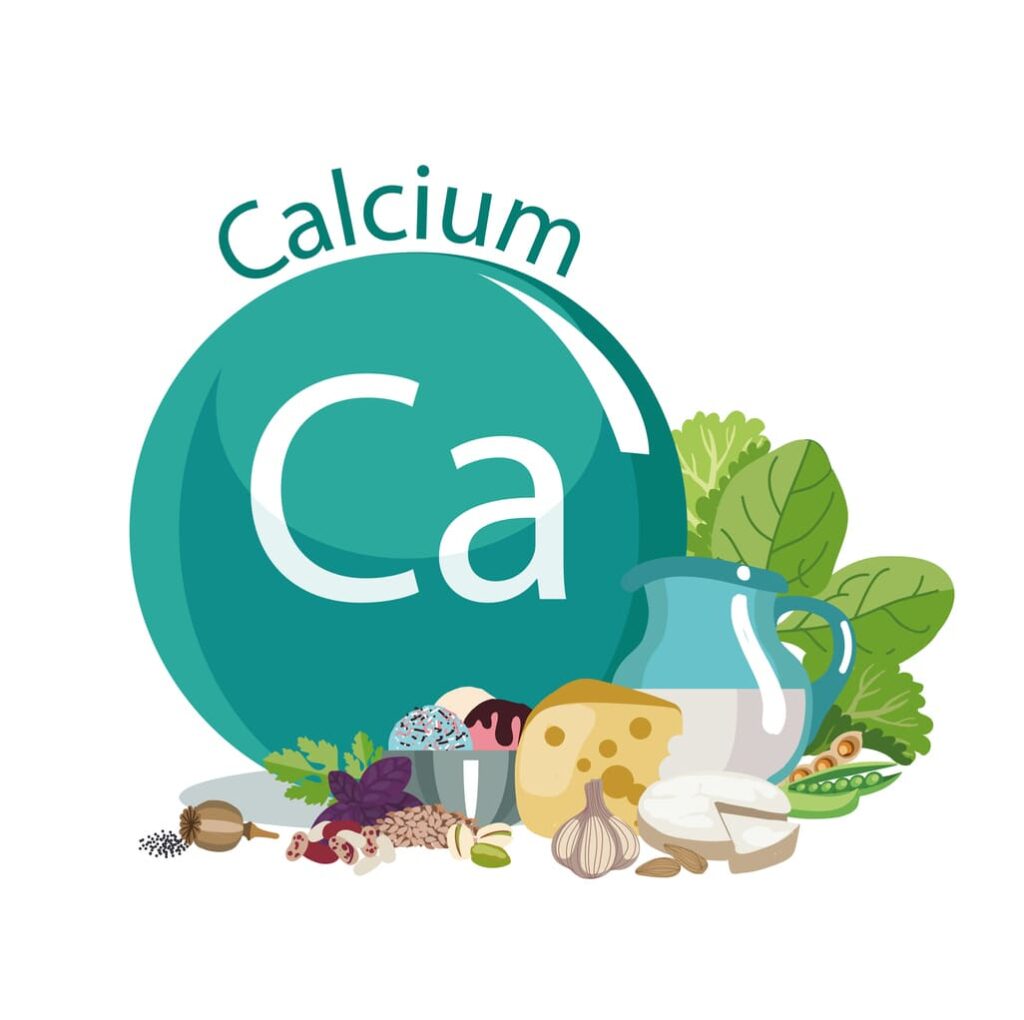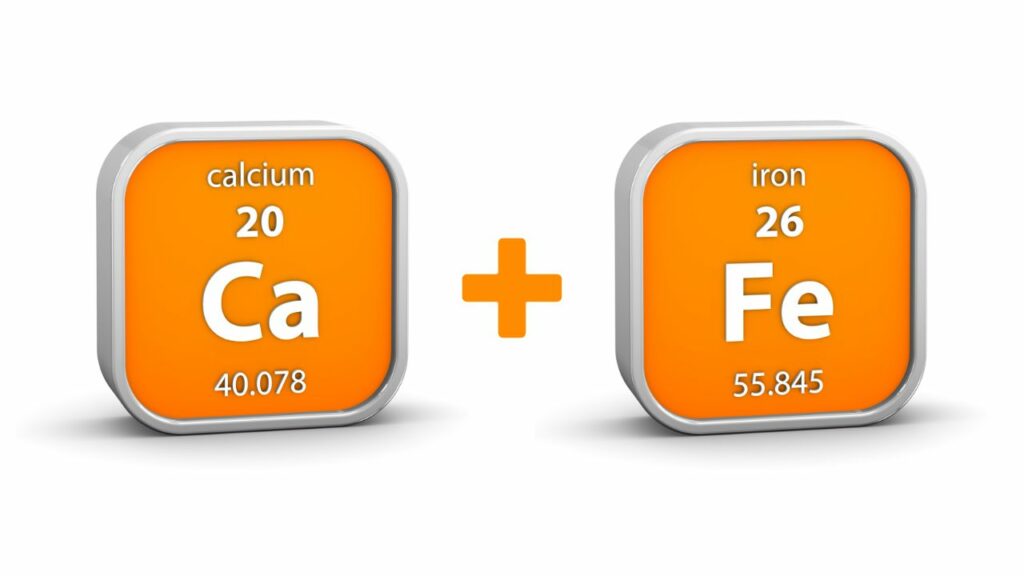Iron and calcium are two essential minerals, responsible for numerous processes in the body and play a major role in keeping you healthy.
A study has shown that more than 45% of people suffer from iron and/or calcium deficiency.
Now that we know we’re at high risk of deficiency, the question posing itself is simple, can you take Iron and Calcium together?
The answer is a resounding yes, but please feel free to read the entire article, as the science on it can be confusing, contradictory and at times, wacky.
Before I show you what I mean by the above, let’s first have a quick overview of Iron and Calcium, so that we better understand what we’re actually imbuing.
Table of Contents
Why Do You Need Iron?

Iron is an essential mineral responsible for keeping your immune system healthy, affects sleep quality in a positive way, enhances exercise performance, better skin and much more.
More than 70% of all the iron in your body can be found in a protein called hemoglobin, found in red blood cells.
Those cells transport oxygen all throughout the body, helping your organs function optimally.
Why Do You Need Calcium?

Calcium is the most plenteous mineral in the body, percentage wise.
You may already know that Calcium is great for bone and teeth health, but some of its other benefits are often understated.
For example, Calcium helps your muscles move, affects nerve communication between body and brain, enhances blood vessel movement and releases many essential hormones.
Does Calcium Affects Iron Absorption Rates?
Some people will cite numerous studies showing Calcium inhibiting Iron absorption rates.
For example, an old study from 1998 has shown that, when Calcium and Iron are taken on a full stomach, Calcium inhibits the absorption of Iron.
The study lead researchers also point out that, over time, even when supplementing Iron, one could still experience deficiency due to Calcium’s negative effects on Iron.
Moreover, the effects of Calcium on Iron absorption were found to be up to 50%, which is a serious number.
There are three things wrong with this study.
First of all, study participants took Calcium and Iron with food, which is generally not recommended when supplementing minerals.
Secondly, the study had a very small sample size and could hardly be called a reliable source of information due to only 14 study participants.
Lastly, Vitamin C, which helps iron absorption is nowhere mentioned in this study. This is very weird, as many multivitamins that include Iron and Calcium also have Vitamin C added to the fray.
Not to mention that the study is almost 30 years old and that other, better studies have shown different results.
Looking at one of the newer systematic reviews of over a dozen Iron and Calcium papers, you get an entirely different picture.
Yes, the meta analysis confirms that short-term studies did find Calcium to negatively affect Iron absorption, but they also point out the many problems with the research performed in these papers.
To get to the point, the main protein responsible for the vast benefits of Iron, hemoglobin, was not affected by Calcium.
Last but not least, this meta-analysis claims that separating Calcium and Iron supplementation is hardly going to have a positive effect.
What does this mean for the common layman?
You can take Iron and Calcium together without worry and you won’t need to seperate them or do any of the other shenanigans some articles suggest.
When Should You Take Iron And Calcium Together?
Some say it doesn’t matter, but I beg to disagree. I have noticed much higher benefits when taking it in the evening on an empty stomach.
While you sleep, both Iron and Calcium work together to bring out the best of their benefits.
When I was having them with breakfast, I felt bloated and didn’t experience much of the positive effects described at the beginning of the article.
I wholeheartedly recommend taking them before bedtime or at least in the afternoon, but don’t forget to take them on an empty stomach and preferably, with Vitamin C.
Are There Any Side Effects of Taking Iron And Calcium Together?
Since both of these minerals are naturally present in the body in high amounts, supplementing them won’t lead to any side effects.
In very rare cases, you may experience a bit of nausea, constipation and “gas”, if you know what I mean.
Otherwise, you can take Iron and Calcium together without having to worry about any serious side effects.
As I already said, these two are the building blocks of your entire body, so there’s nothing much to worry about.
How To Improve Absorption Rates of Iron And Calcium
We have already concluded that taking them on an empty stomach is a must, but there are two essential vitamins that vastly help with absorption rates of Iron and Calcium.
Those are Vitamin C and Vitamin D.
Vitamin C essentially chelates Iron, leading to higher absorption rates and increased stability.
The latter is done by keeping pH levels in tact.
The study concludes that this effect is dose-dependent, meaning that more Vitamin C leads to better Iron efficiency.
Vitamin D (especially Vitamin D3) helps Calcium absorption in the gut. It also promotes better nerve communication and neurotransmitter interaction.
With all this in mind, you would be best of choosing a multivitamin that contains all four of these minerals and vitamins together.
I have written an article dubbed “How To Take Calcium Supplements For Best Absorption?”, so I implore you to check it out for additional information.
Best Dosages of Iron And Calcium
For people over the age of 18, 1000mgs of Calcium is by far the best dosage you can take. It has a very safe side effect profile, while still providing you with the many benefits this mineral has to offer.
If you’re over the age of 70, you can add an additional 300mgs to your daily dosage, as both men and women in that age range are at very serious risk of fractures and bone injury.
Regarding iron, the upper limit seems to be 45mgs per day, but don’t be fooled by the labels claiming to contain 200 or 300mgs of Iron, we’re here talking about pure Iron.
The thing is, a 300mg tablet of ferrous gluconate (an iron supplement) contains only 35mgs of pure Iron.
This means you won’t have to worry about “overdosing” on Iron, as we’re talking about elemental Iron when it comes to the upper limit range of consumption.





